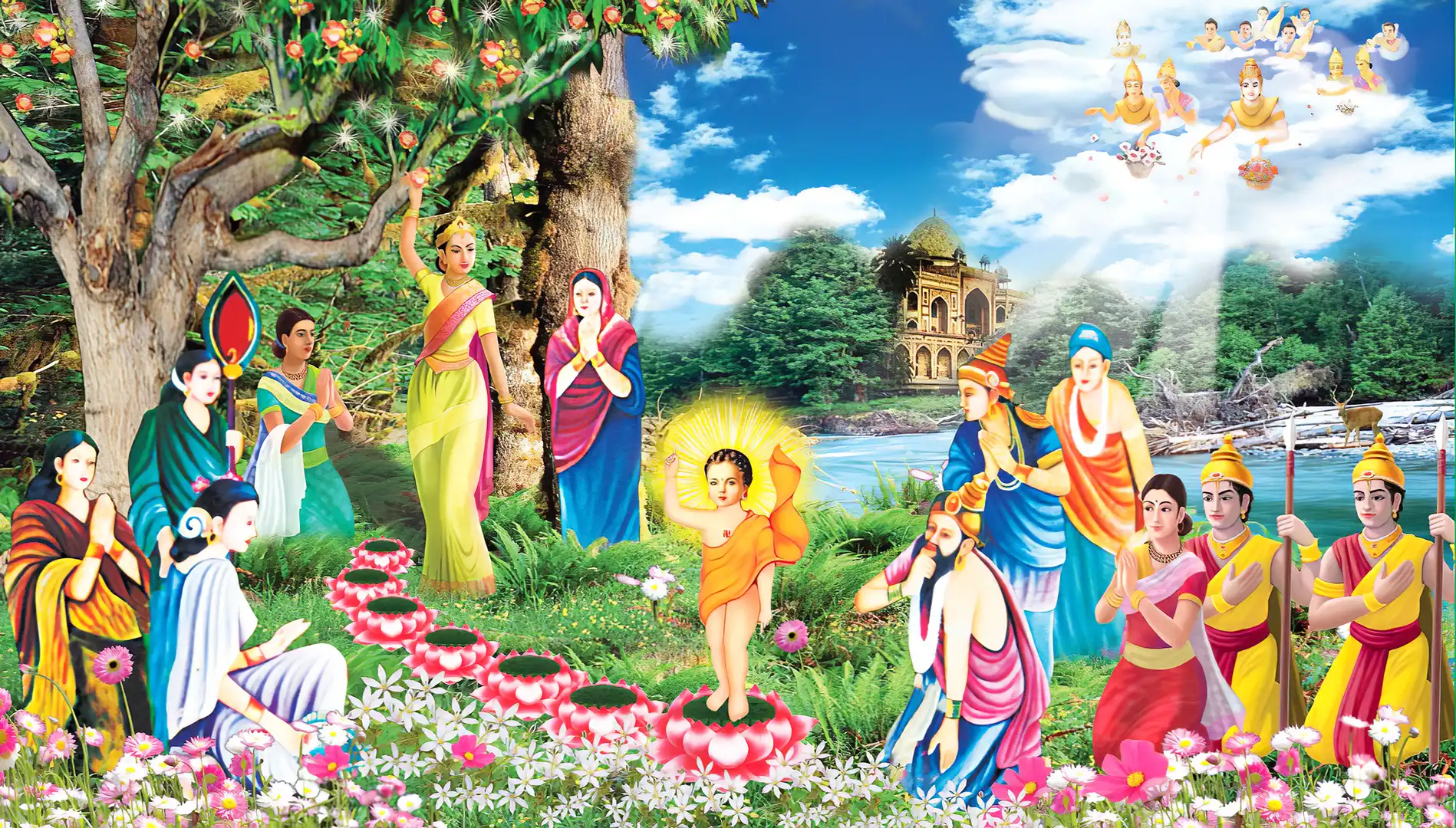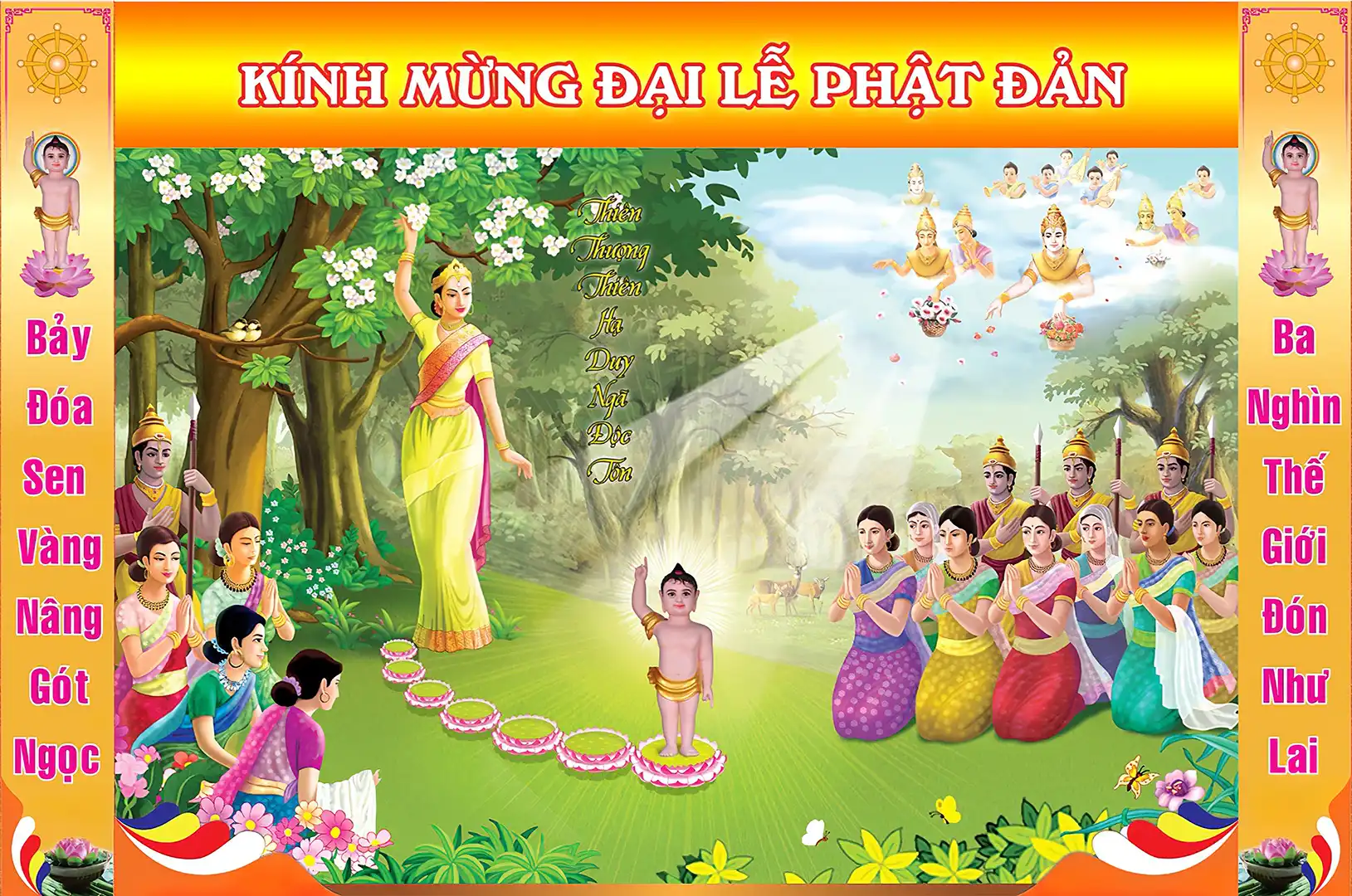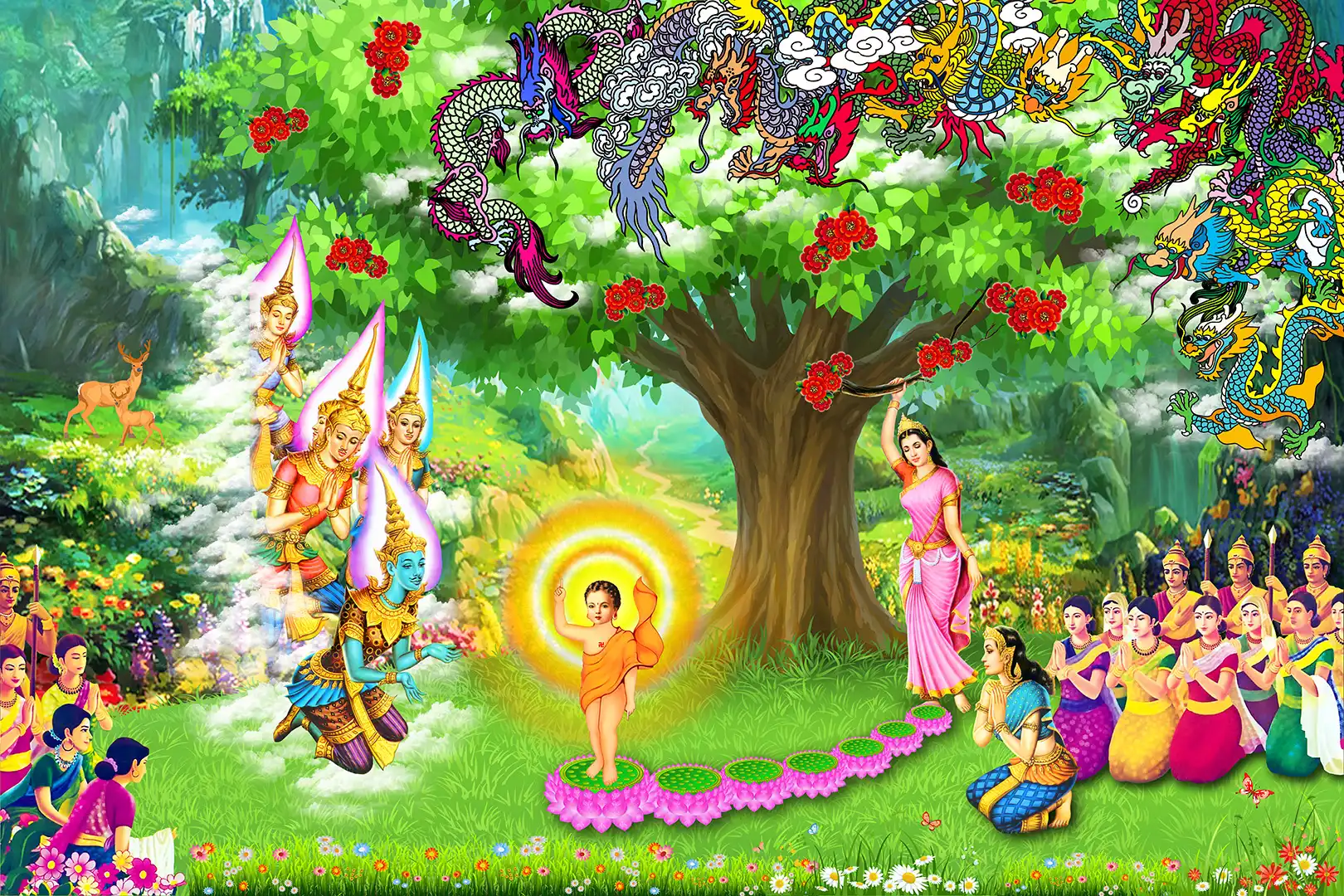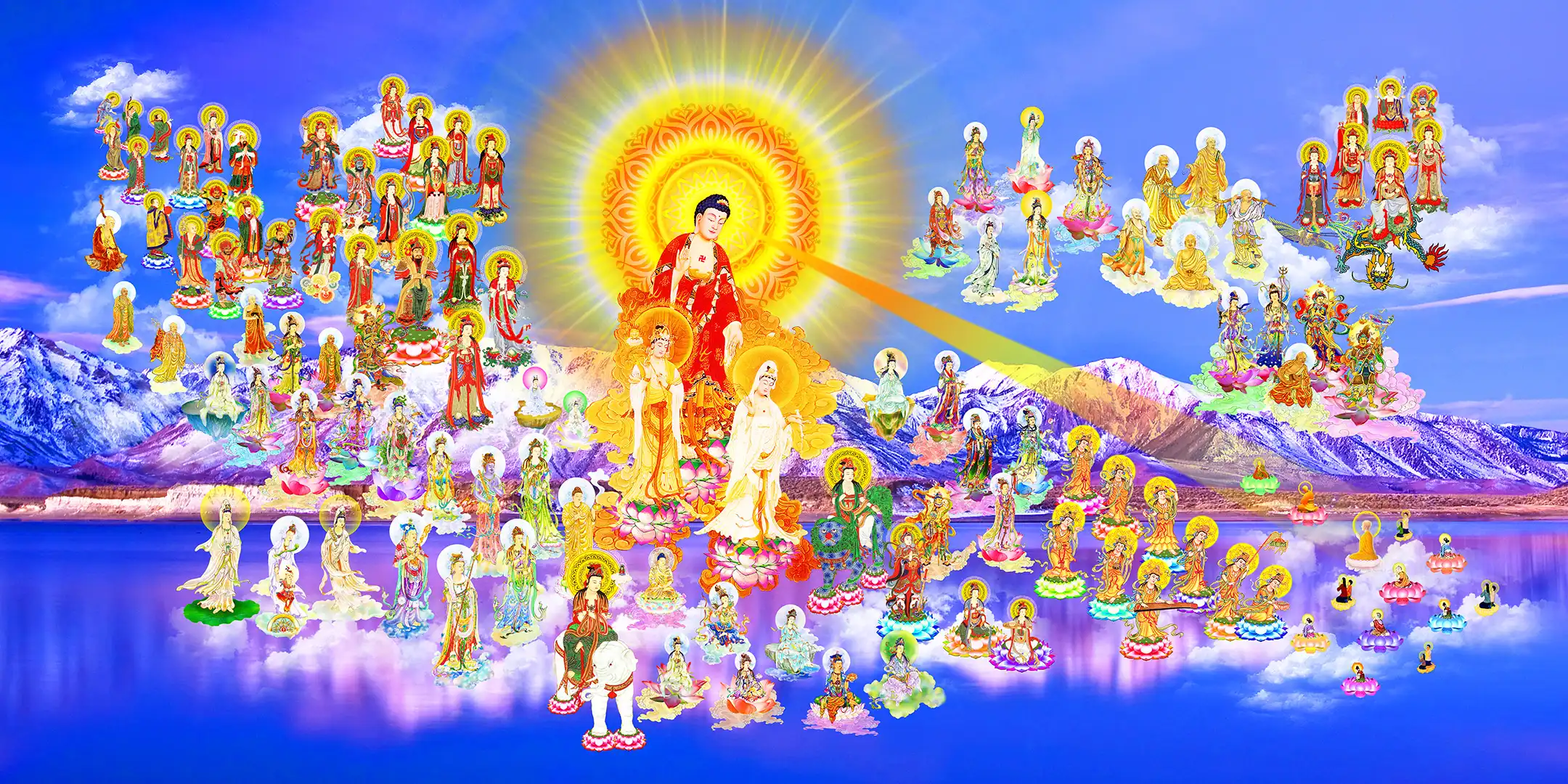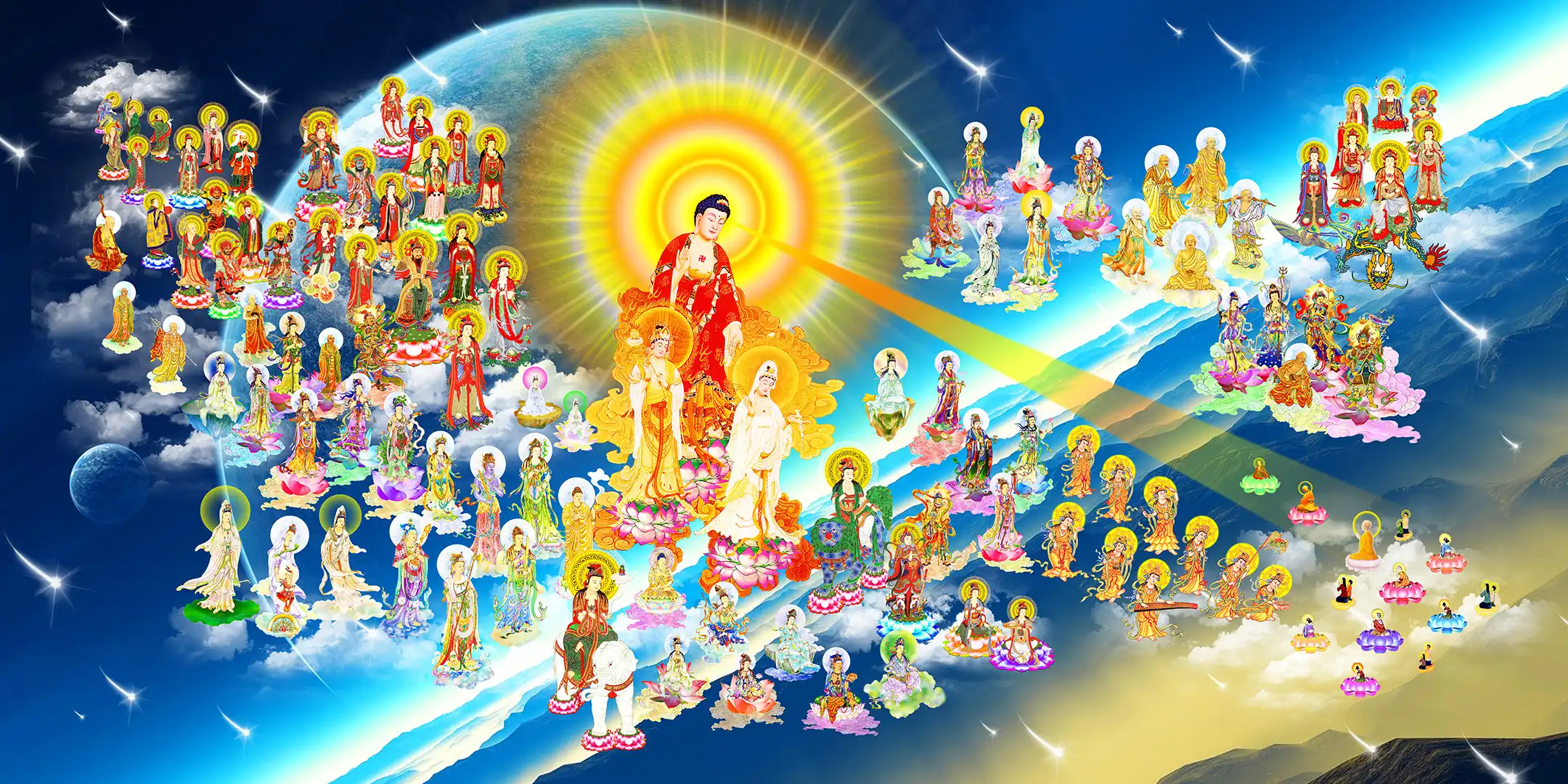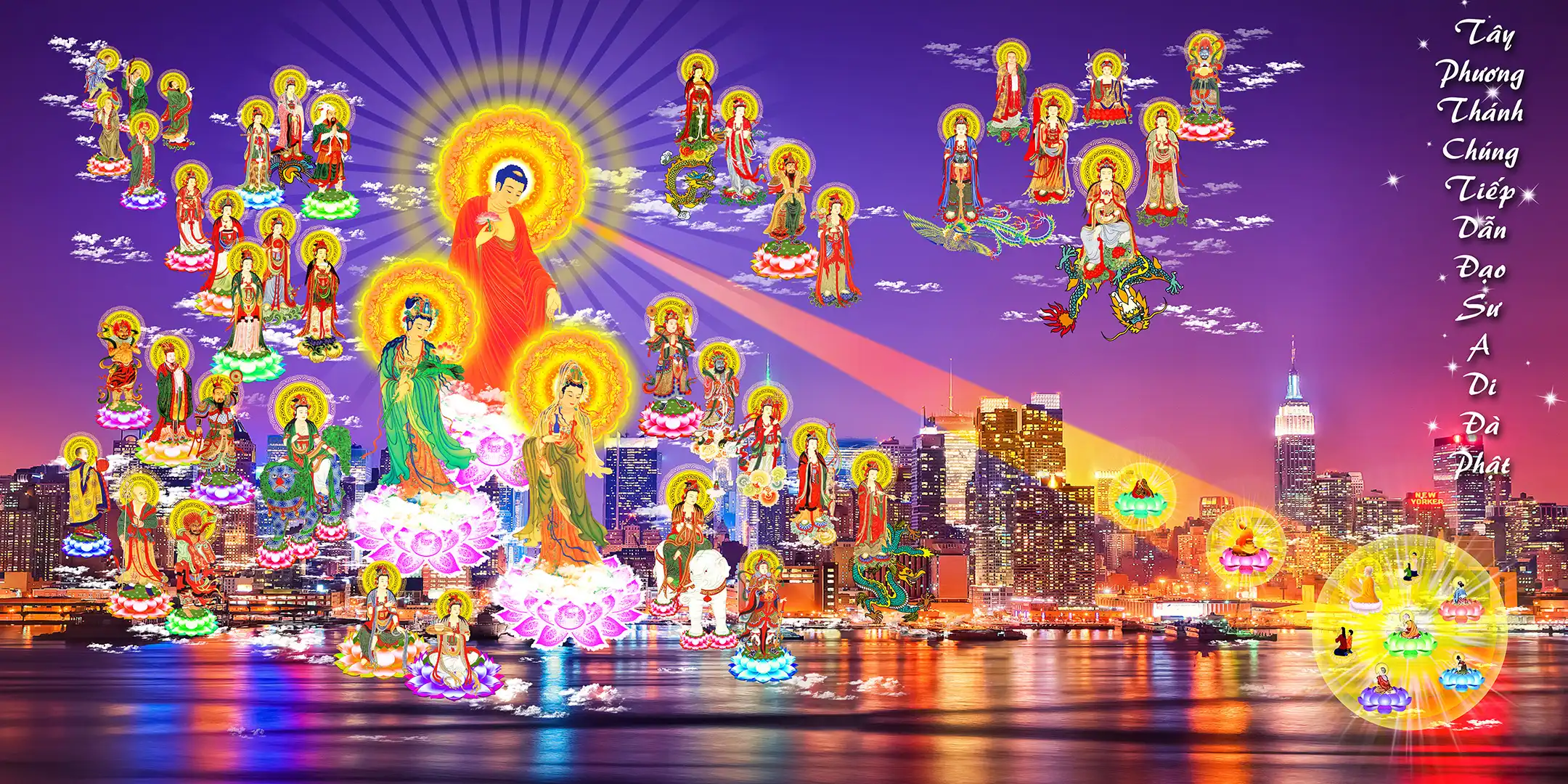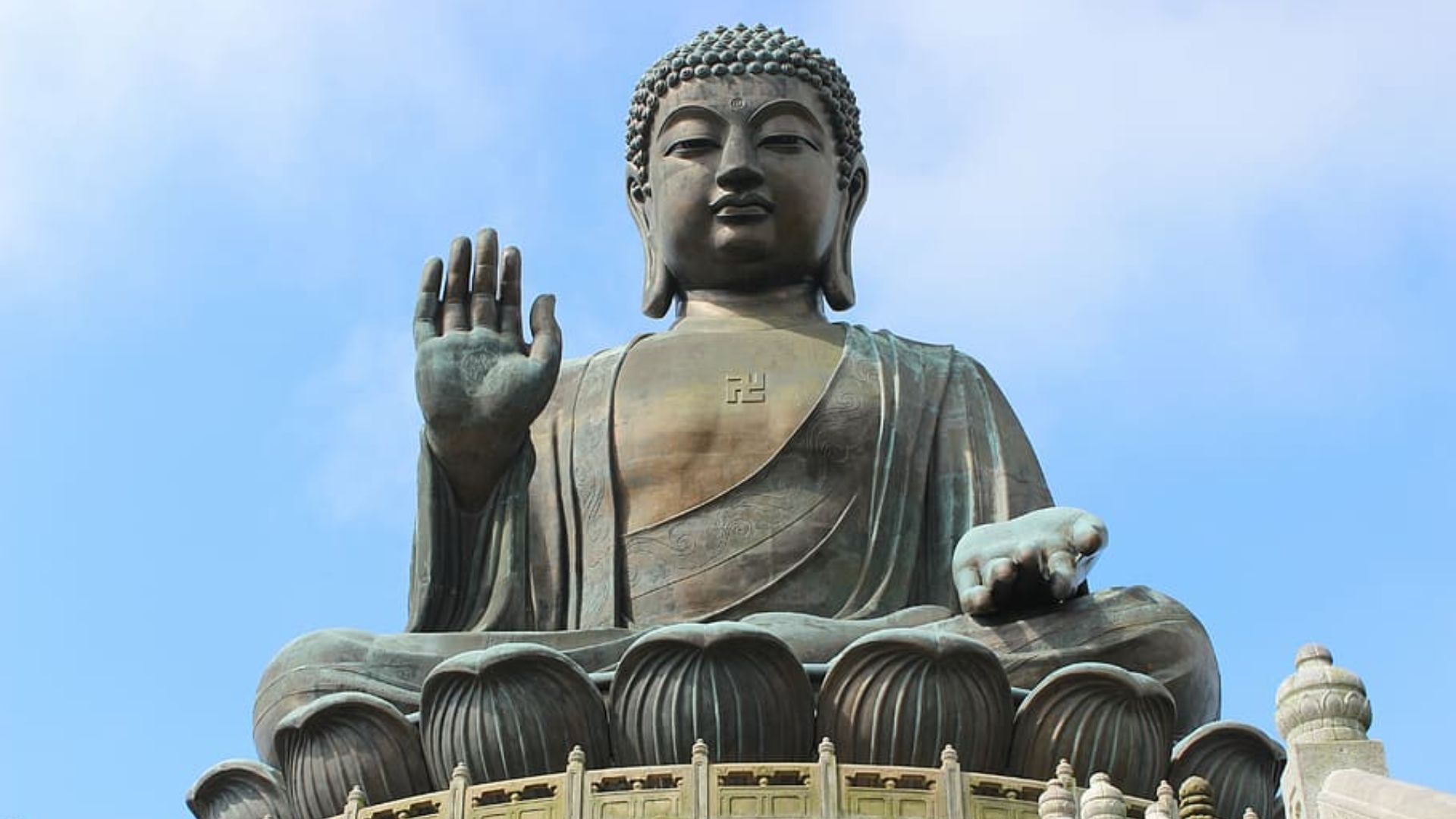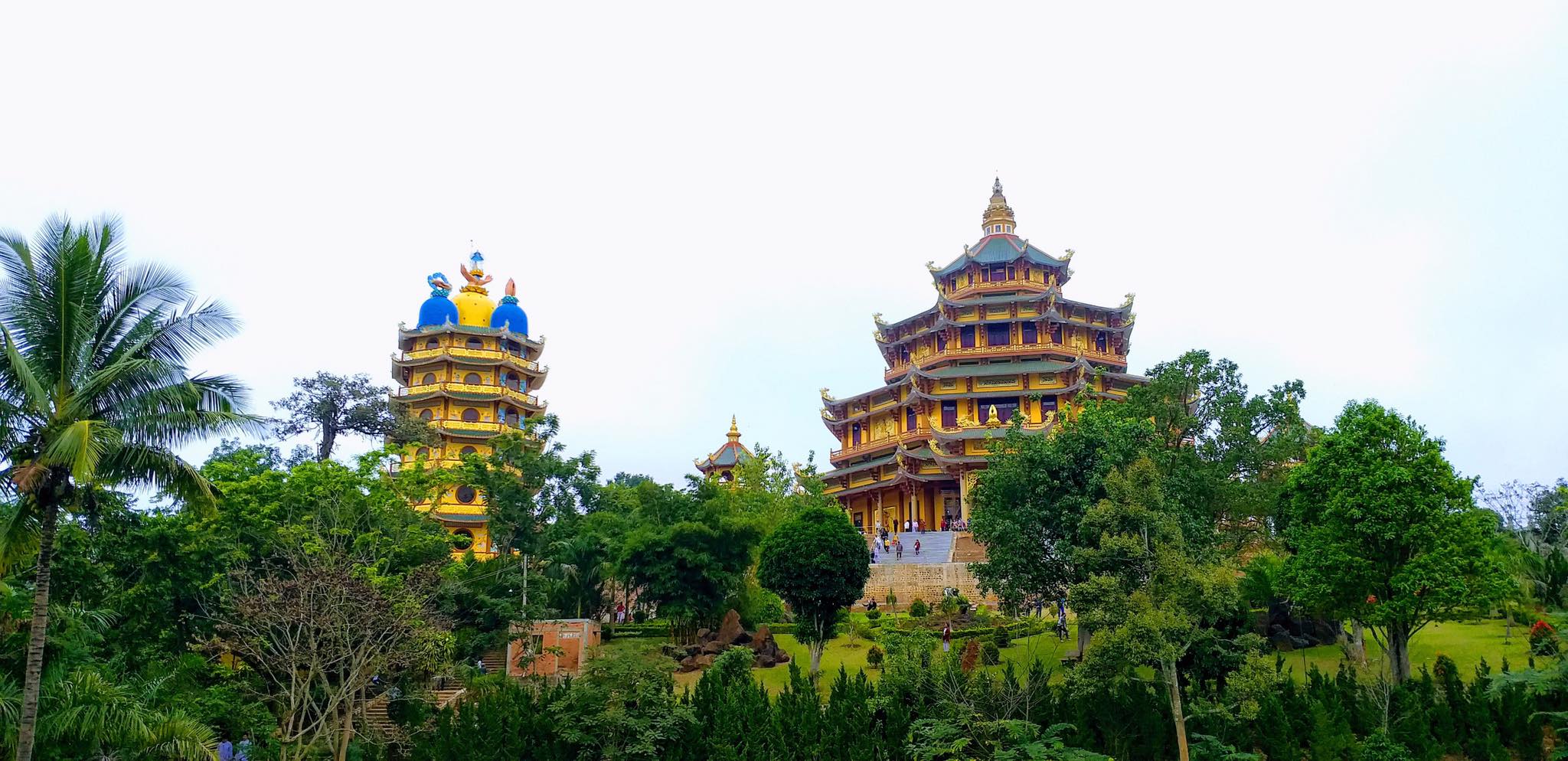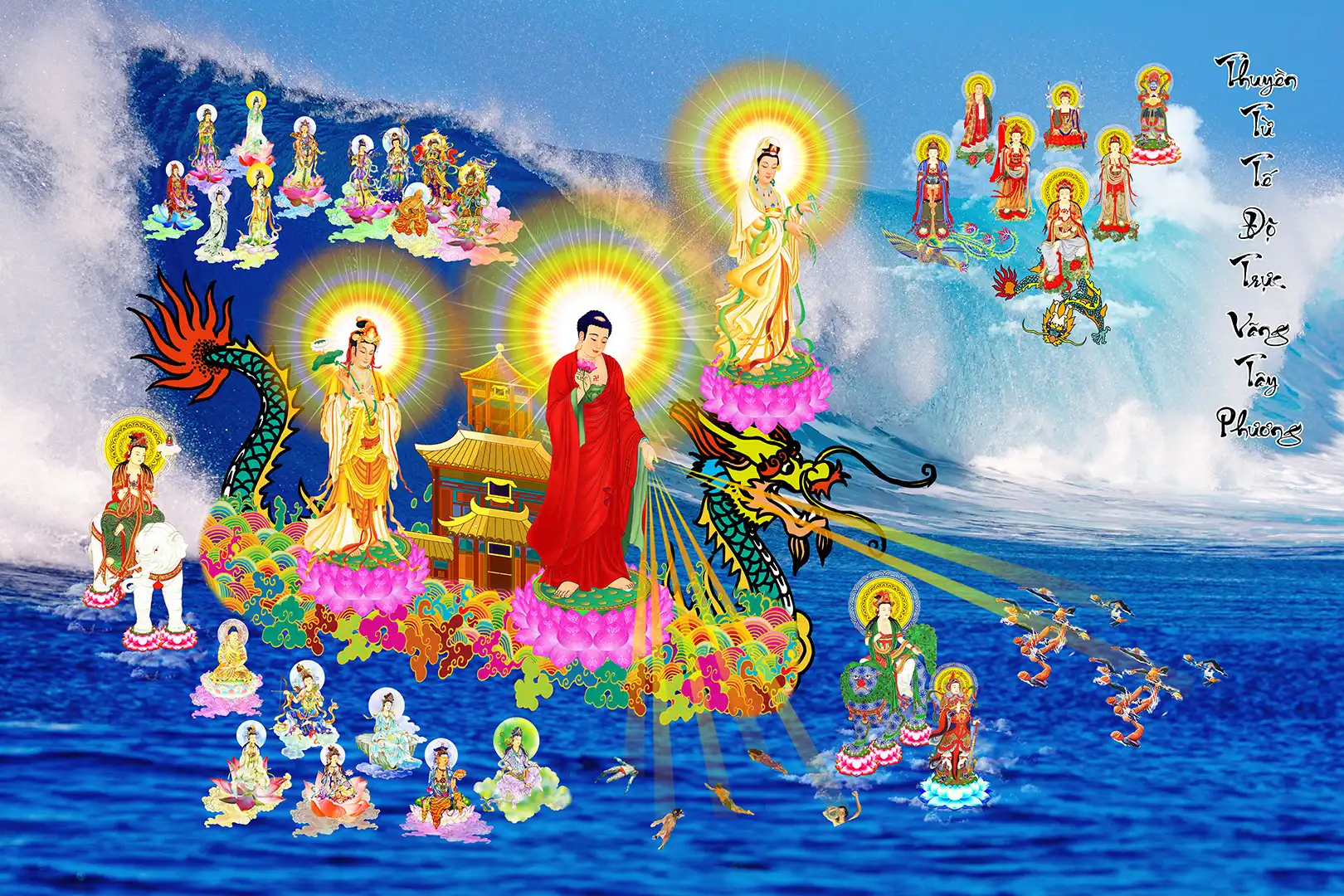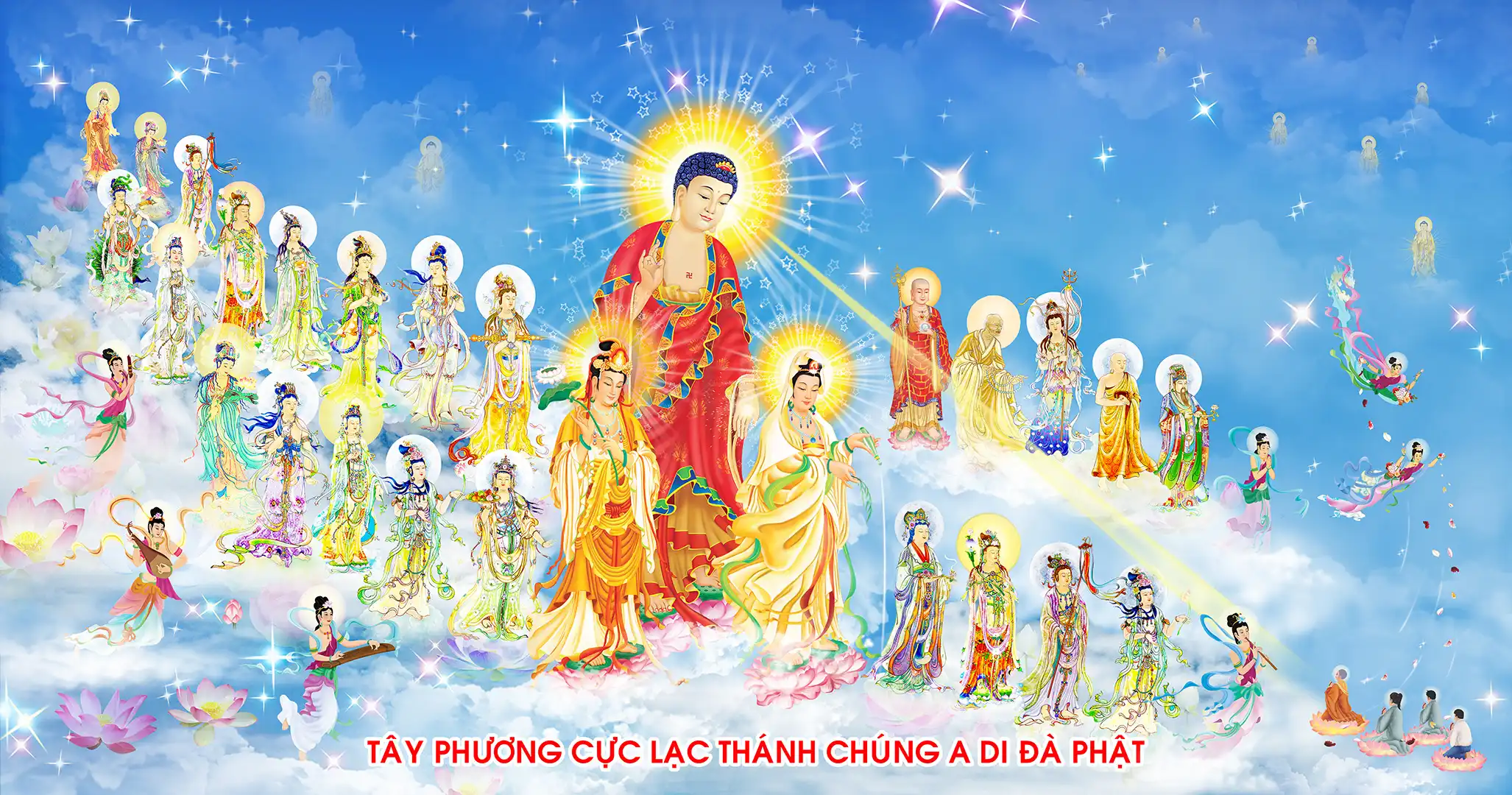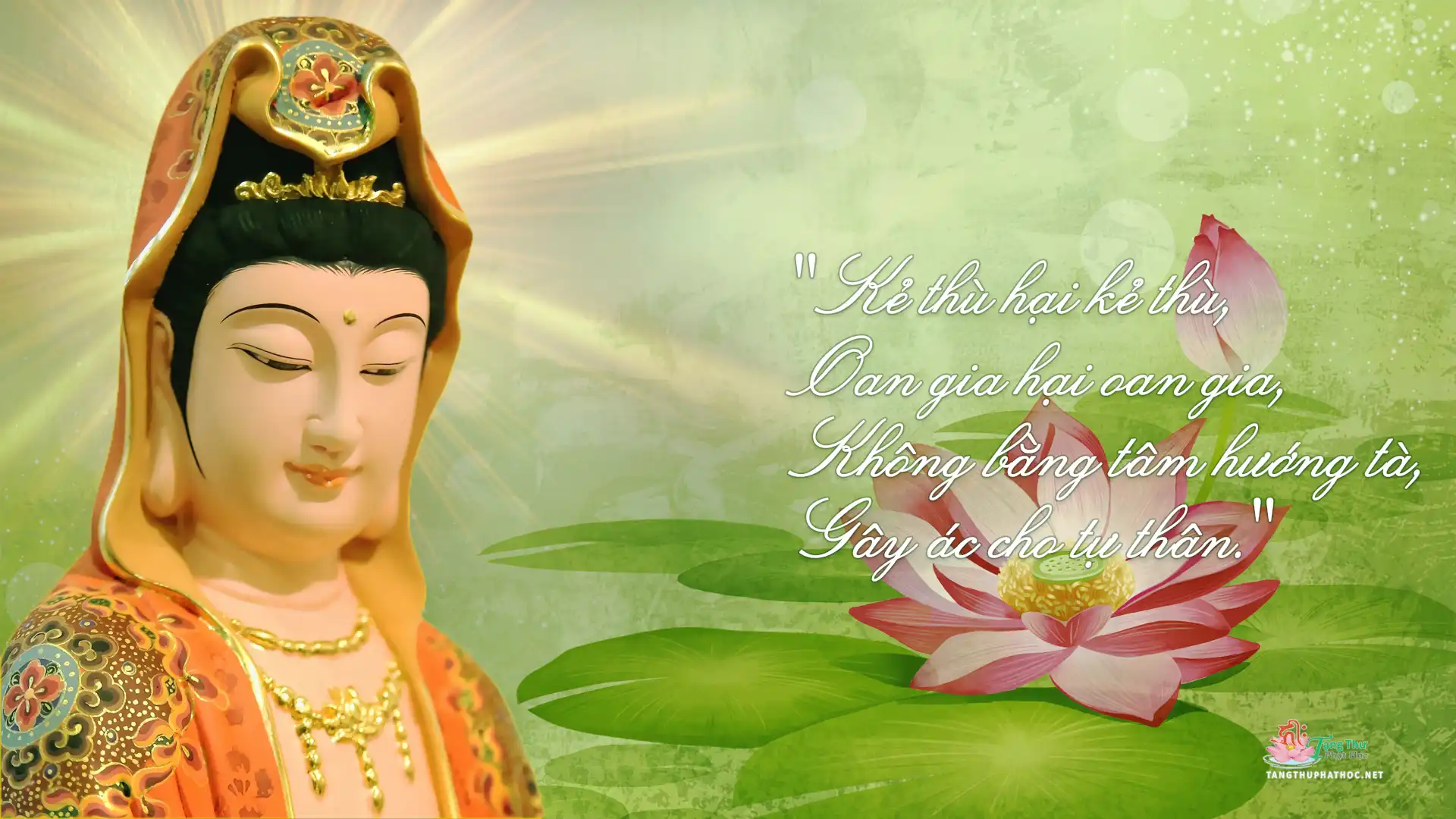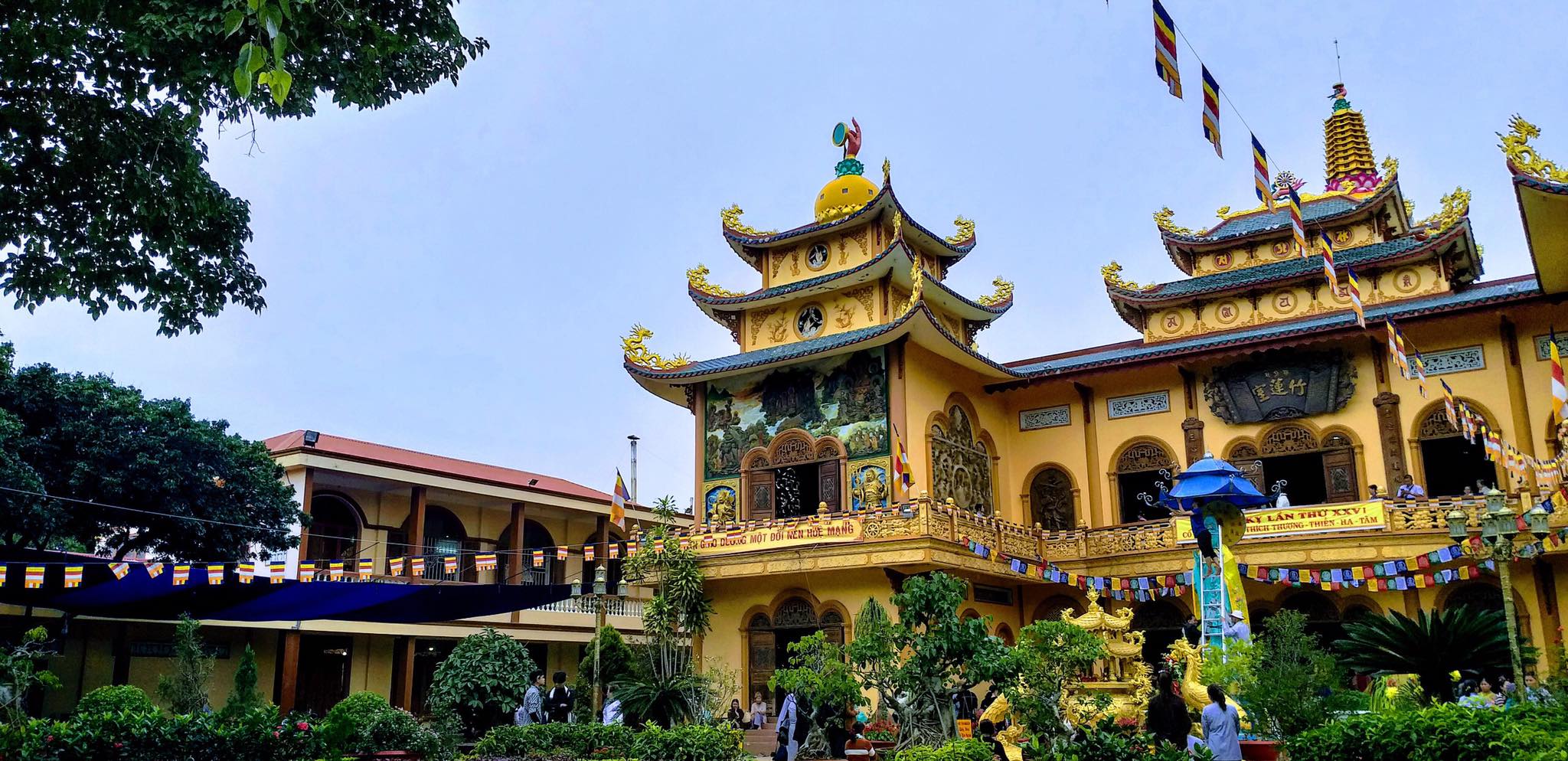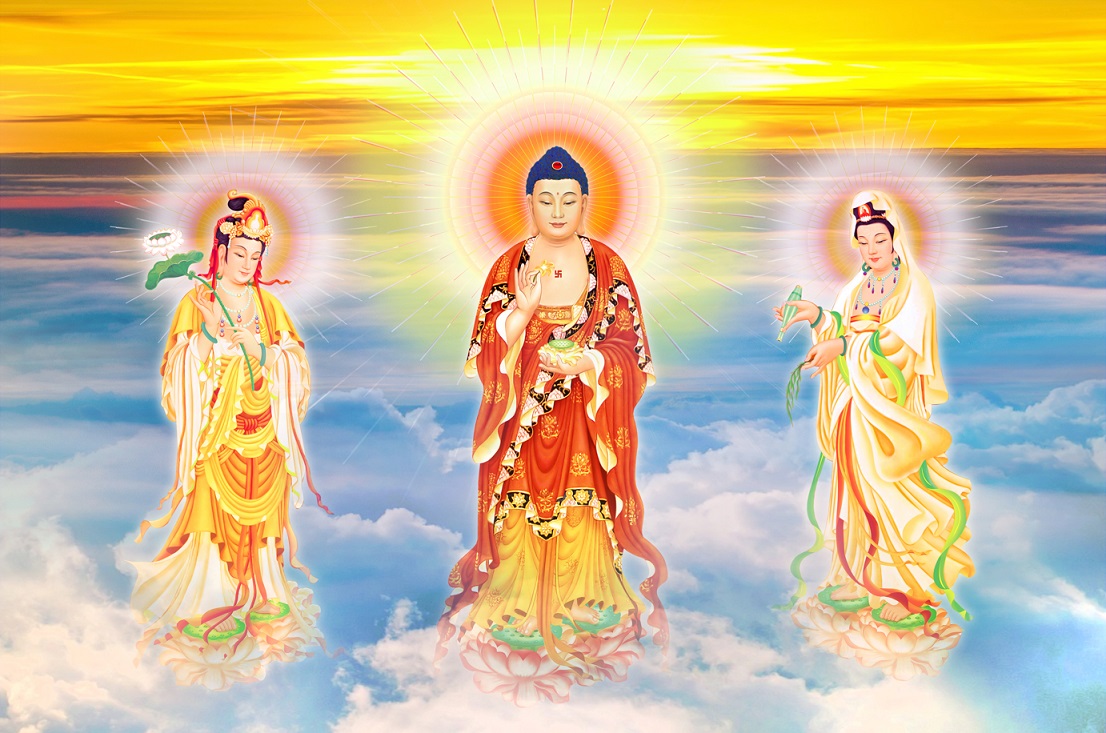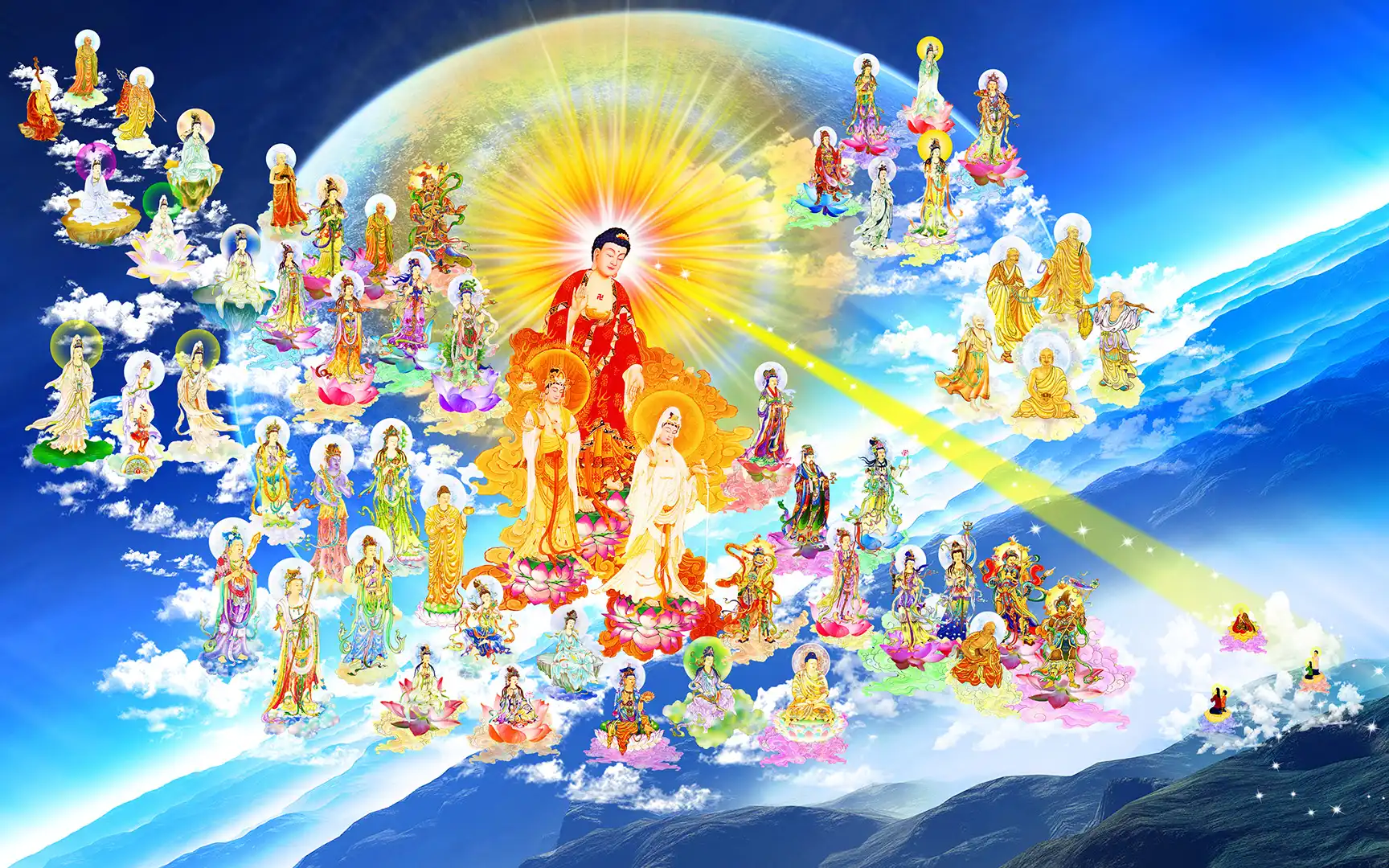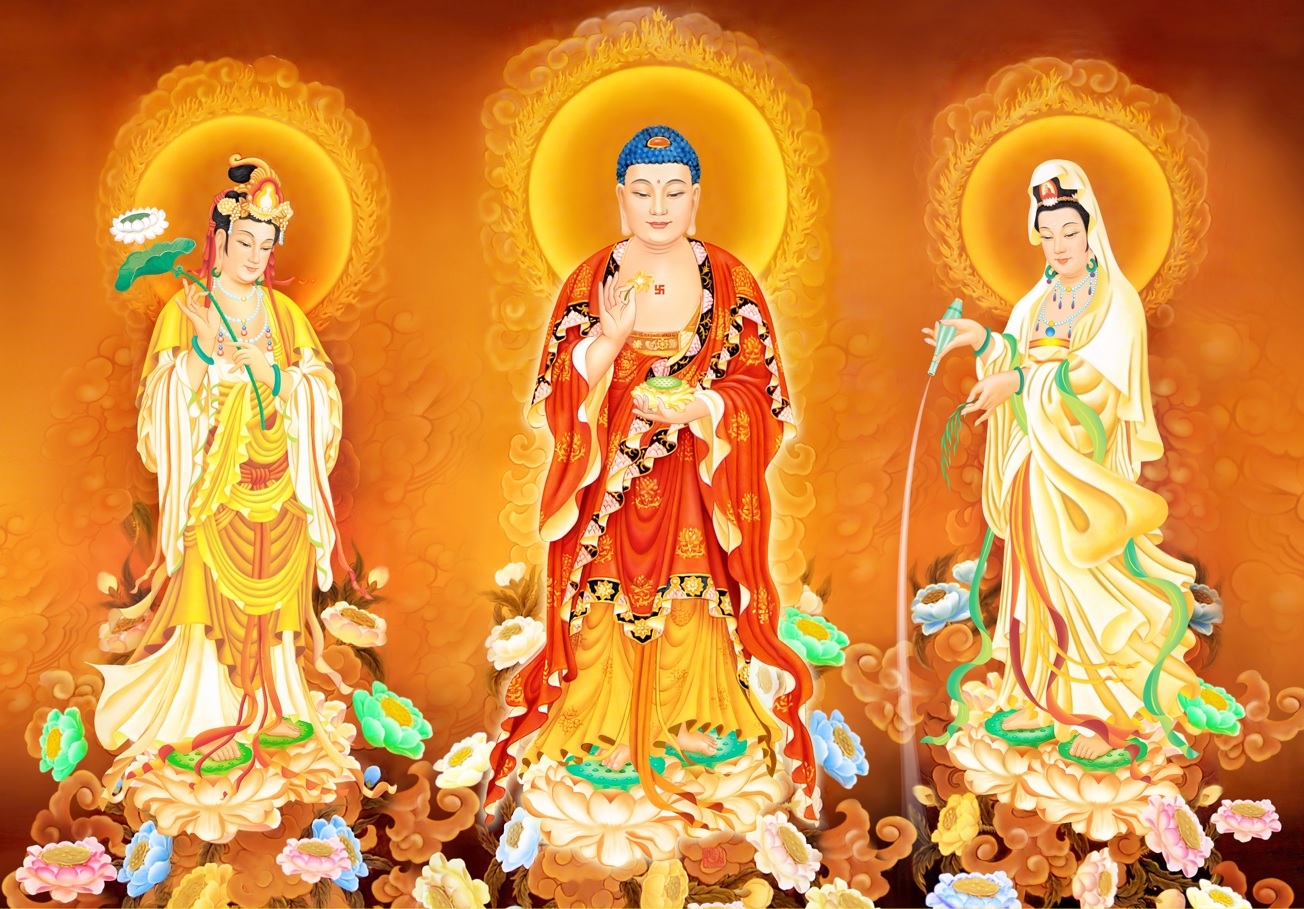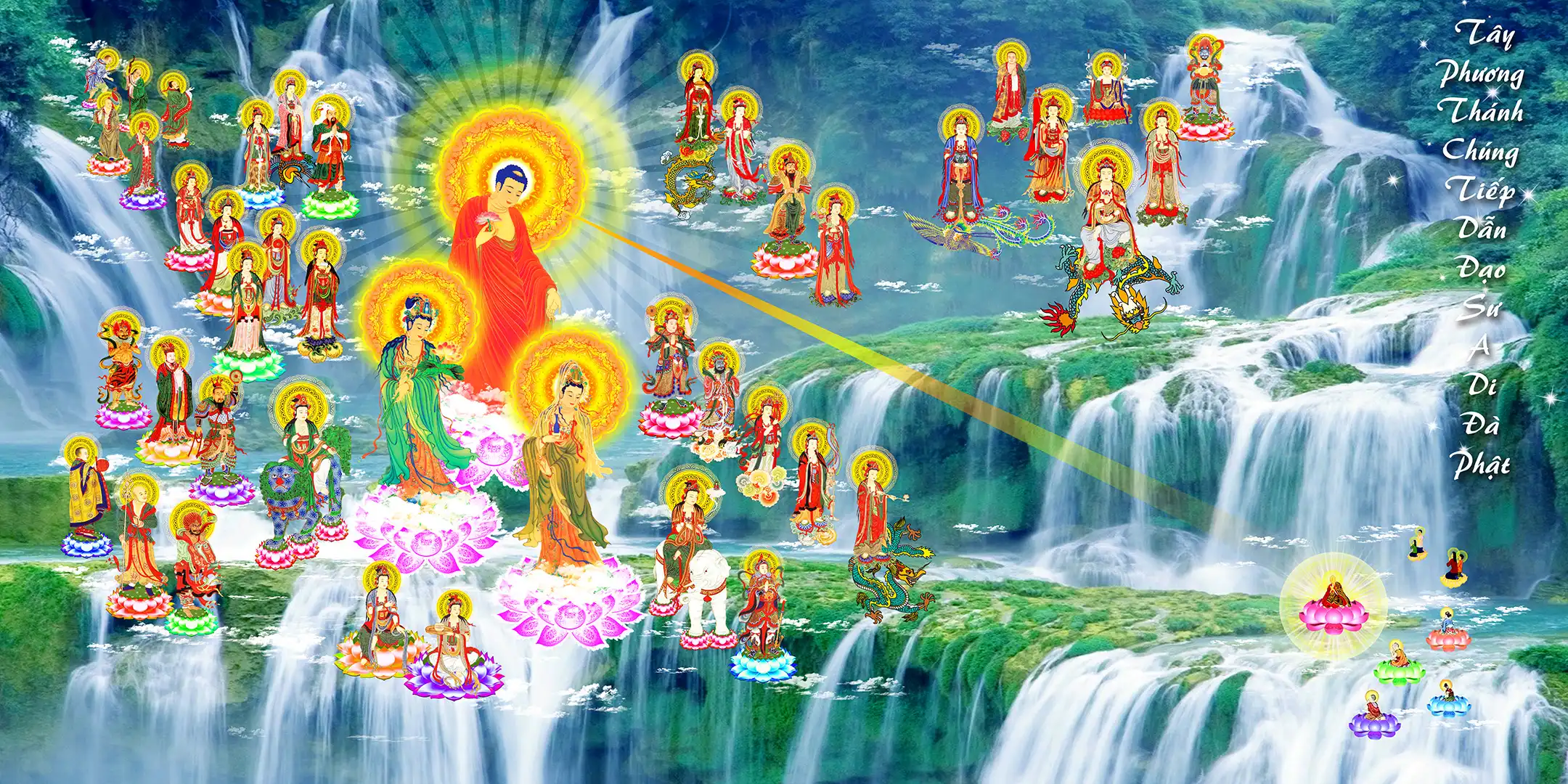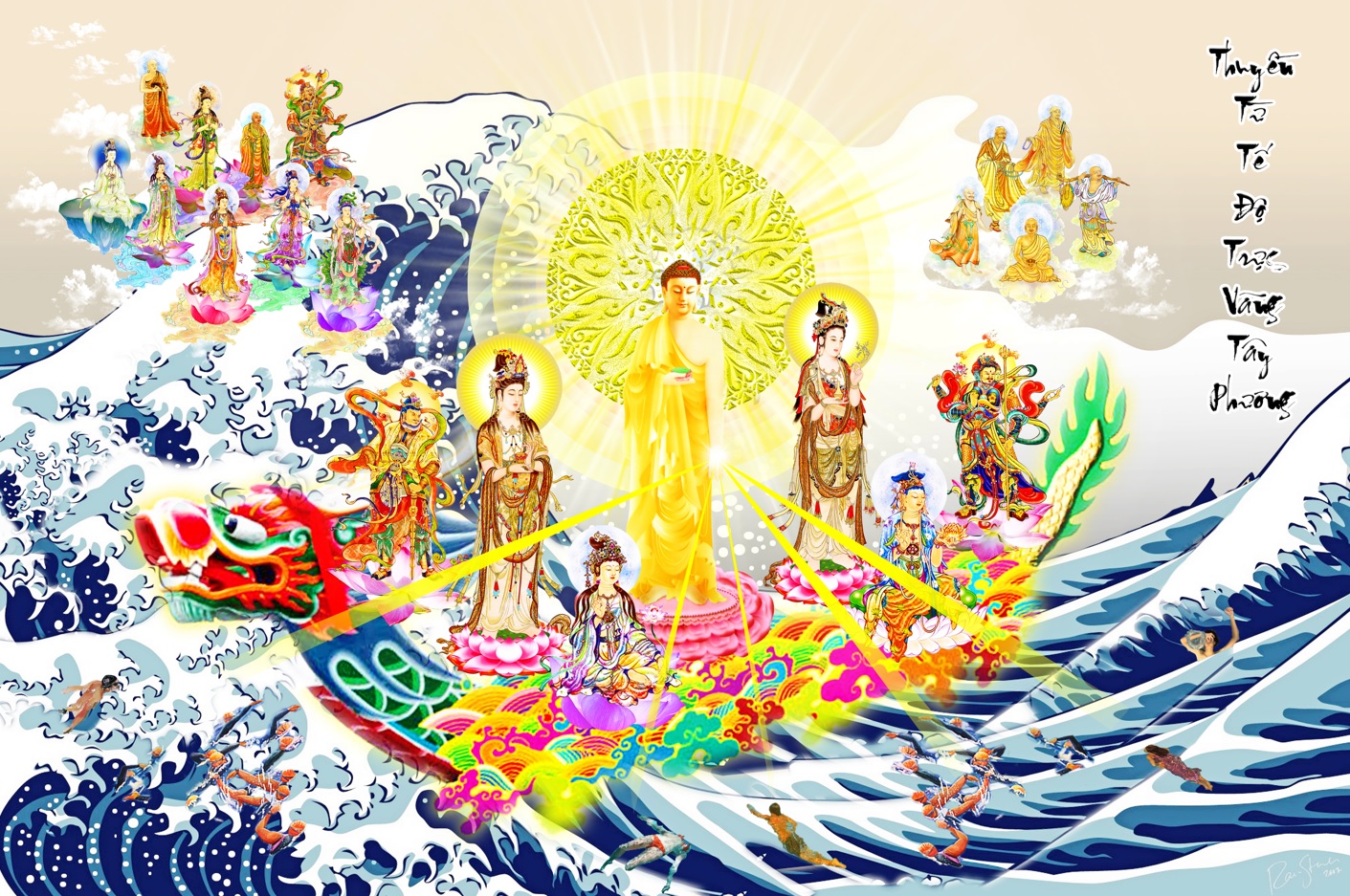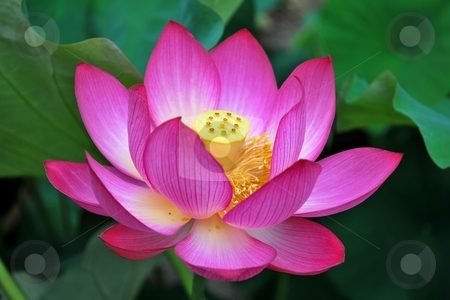Kalama Sutra
The Instruction to the Kalamas
Translated from the Pali by Soma Thera
I
The Kalamas of Kesaputta Go to See the Buddha
1. I heard thus. Once the Blessed One, while wandering in the Kosala country with a large community of Bhikkhus, entered a town of the Kalama people called Kesaputta. The Kalamas who were inhabitants of Kesaputta: “Reverend Gautama, the monk, the son of the Sakyans, has, while wandering in the Kosala country, entered Kesaputta. The good repute of the Reverend Gautama has been spread in this way: Indeed, the Blessed One is thus consummate, fully enlightened, endowed with knowledge and practice, sublime, knower of the worlds, peerless, guide of tamable men, teacher of divine and human beings, which he by himself has through direct knowledge understood clearly. He set forth the Dhamma, good in the beginning, good in the middle, good in the end, possessed of meaning and the letter, and complete in everything; and he proclaims the holy life that is perfectly pure. Seeing such consummate ones is good indeed.”
2. Then the Kalamas who were inhabitants of Kesaputta went to where the Blessed One was. On arriving there some paid homage to him and sat down on one side; some exchanged greetings with him and after the ending of cordial memorable talk, sat down on one side; some saluted him raising their joined palms and sat down on one side; some announced their name and family and sat down on one side; some without speaking, sat down on one side.
The Kalamas of Kesaputta Ask for Guidance From the Buddha
3. The Kalamas who were inhabitants of Kesaputta sitting on one side said to the Blessed One: “There are some monks and Brahmins, venerable sir, who visit Kesaputta. They expound and explain only their own doctrines; the doctrines of others they despise, revile, and pull to pieces. Some other monks and Brahmins too, venerable sir, come to Kesaputta. They also expound and explain only their own doctrines; the doctrines of others they despise, revile, and pull to pieces. Venerable sir, there is doubt; there is uncertainty in us concerning them. Which of these reverend monks and Brahmins spoke the truth and which falsehood?”
The Criterion for Rejection
4. “It is proper for you, Kalamas, to doubt, to be uncertain; uncertainty has arisen in you about what is doubtful. Come, Kalamas. Do not go upon what has been acquired by repeated hearing; nor upon tradition; nor upon rumor; nor upon what is in a scripture; nor upon surmise; nor upon an axiom; nor upon specious reasoning; nor upon a bias towards a notion that has been pondered over; nor upon another’s seeming ability; nor upon the consideration, ‘The monk is our teacher.’ Kalamas, when you yourselves know: ‘These things are bad; these things are blamable; these things are censured by the wise; undertaken and observed, these things lead to harm and ill,’ abandon them.
Greed, Hate, and Delusion
5. “What do you think, Kalamas? Does greed appear in a man for his benefit or harm?” — “For his harm, venerable sir.” — “Kalamas, being given to greed, and being overwhelmed and vanquished mentally by greed, this man takes life, steals, commits adultery, and tells lies; he prompts another too, to do likewise. Will that be long for his harm and ill?” — “Yes, venerable sir.”
6. “What do you think, Kalamas? Does hate appear in a man for his benefit or harm?” — “For his harm, venerable sir.” — “Kalamas, being given to hate, and being overwhelmed and vanquished mentally by hate, this man takes life, steals, commits adultery, and tells lies; he prompts another too, to do likewise. Will that be long for his harm and ill?” — “Yes, venerable sir.”
7. “What do you think, Kalamas? Does delusion appear in a man for his benefit or harm?” — “For his harm, venerable sir.” — “Kalamas, being given to delusion, and being overwhelmed and vanquished mentally by delusion, this man takes life, steals, commits adultery, and tells lies; he prompts another too, to do likewise. Will that be long for his harm and ill?” — “Yes, venerable sir.”
8. “What do you think, Kalamas? Are these things good or bad?” — “Bad, venerable sir” — “Blamable or not blamable?” — “Blamable, venerable sir.” — “Censured or praised by the wise?” — “Censured, venerable sir.” — “Undertaken and observed, do these things lead to harm and ill, or not? Or how does it strike you?” — “Undertaken and observed, these things lead to harm and ill. Thus it strikes us here.”
9. “Therefore, did we say, Kalamas, what was said thus, ‘Come Kalamas. Do not go upon what has been acquired by repeated hearing; nor upon tradition; nor upon rumor; nor upon what is in a scripture; nor upon surmise; nor upon an axiom; nor upon specious reasoning; nor upon a bias towards a notion that has been pondered over; nor upon another’s seeming ability; nor upon the consideration, “The monk is our teacher.” Kalamas, when you yourselves know: “These things are bad; these things are blamable; these things are censured by the wise; undertaken and observed, these things lead to harm and ill,” abandon them.’
The Criterion for Acceptance
10. “Come, Kalamas. Do not go upon what has been acquired by repeated hearing; nor upon tradition; nor upon rumor; nor upon what is in a scripture; nor upon surmise; nor upon an axiom; nor upon specious reasoning; nor upon a bias towards a notion that has been pondered over; nor upon another’s seeming ability; nor upon the consideration, ‘The monk is our teacher.’ Kalamas, when you yourselves know: ‘These things are good; these things are not blamable; these things are praised by the wise; undertaken and observed, these things lead to benefit and happiness,’ enter on and abide in them.
Absence of Greed, Hate, and Delusion
11. “What do you think, Kalamas? Does absence of greed appear in a man for his benefit or harm?” — “For his benefit, venerable sir.” — “Kalamas, being not given to greed, and being not overwhelmed and not vanquished mentally by greed, this man does not take life, does not steal, does not commit adultery, and does not tell lies; he prompts another too, to do likewise. Will that be long for his benefit and happiness?” — “Yes, venerable sir.”
12. “What do you think, Kalamas? Does absence of hate appear in a man for his benefit or harm?” — “For his benefit, venerable sir.” — “Kalamas, being not given to hate, and being not overwhelmed and not vanquished mentally by hate, this man does not take life, does not steal, does not commit adultery, and does not tell lies; he prompts another too, to do likewise. Will that be long for his benefit and happiness?” — “Yes, venerable sir.”
13. “What do you think, Kalamas? Does absence of delusion appear in a man for his benefit or harm?” — “For his benefit, venerable sir.” — “Kalamas, being not given to delusion, and being not overwhelmed and not vanquished mentally by delusion, this man does not take life, does not steal, does not commit adultery, and does not tell lies; he prompts another too, to do likewise. Will that be long for his benefit and happiness?” — “Yes, venerable sir.”
14. “What do you think, Kalamas? Are these things good or bad?” — “Good, venerable sir.” — “Blamable or not blamable?” — “Not blamable, venerable sir.” — “Censured or praised by the wise?” — “Praised, venerable sir.” — “Undertaken and observed, do these things lead to benefit and happiness, or not? Or how does it strike you?” — “Undertaken and observed, these things lead to benefit and happiness. Thus it strikes us here.”
15. “Therefore, did we say, Kalamas, what was said thus, ‘Come Kalamas. Do not go upon what has been acquired by repeated hearing; nor upon tradition; nor upon rumor; nor upon what is in a scripture; nor upon surmise; nor upon an axiom; nor upon specious reasoning; nor upon a bias towards a notion that has been pondered over; nor upon another’s seeming ability; nor upon the consideration, “The monk is our teacher.” Kalamas, when you yourselves know: “These things are good; these things are not blamable; these things are praised by the wise; undertaken and observed, these things lead to benefit and happiness,” enter on and abide in them.’
The Four Exalted Dwellings
16. “The disciple of the Noble Ones, Kalamas, who in this way is devoid of coveting, devoid of ill will, un-deluded, clearly comprehending and mindful, dwells, having pervaded, with the thought of amity, one quarter; likewise the second; likewise the third; likewise the fourth; so above, below, and across; he dwells, having pervaded because of the existence in it of all living beings, everywhere, the entire world, with the great, exalted, boundless thought of amity that is free of hate or malice.
“He lives, having pervaded, with the thought of compassion, one quarter; likewise the second; likewise the third; likewise the fourth; so above, below, and across; he dwells, having pervaded because of the existence in it of all living beings, everywhere, the entire world, with the great, exalted, boundless thought of compassion that is free of hate or malice.
“He lives, having pervaded, with the thought of gladness, one quarter; likewise the second; likewise the third; likewise the fourth; so above, below, and across; he dwells, having pervaded because of the existence in it of all living beings, everywhere, the entire world, with the great, exalted, boundless thought of gladness that is free of hate or malice.
“He lives, having pervaded, with the thought of equanimity, one quarter; likewise the second; likewise the third; likewise the fourth; so above, below, and across; he dwells, having pervaded because of the existence in it of all living beings, everywhere, the entire world, with the great, exalted, boundless thought of equanimity that is free of hate or malice.
The Four Solaces
17. “The disciple of the Noble Ones, Kalamas, who has such a hate-free mind, such a malice-free mind, such an undefiled mind, and such a purified mind, is one by whom four solaces are found here and now.
“‘Suppose there is a hereafter and there is a fruit, result, of deeds done well or ill. Then it is possible that at the dissolution of the body after death, I shall arise in the heavenly world, which is possessed of the state of bliss.’ This is the first solace found by him.
“‘Suppose there is no hereafter and there is no fruit, no result, of deeds done well or ill. Yet in this world, here and now, free from hatred, free from malice, safe and sound, and happy, I keep myself.’ This is the second solace found by him.
“‘Suppose evil (results) befall an evil-doer. I, however, think of doing evil to no one. Then, how can ill (results) affect me who do no evil deed?’ This is the third solace found by him.
“‘Suppose evil (results) do not befall an evil-doer. Then I see myself purified in any case.’ This is the fourth solace found by him.
“The disciple of the Noble Ones, Kalamas, who has such a hate-free mind, such a malice-free mind, such an undefiled mind, and such a purified mind, is one by whom, here and now, these four solaces are found.”
“So it is, Blessed One. So it is, Sublime one. The disciple of the Noble Ones, venerable sir, who has such a hate-free mind, such a malice-free mind, such an undefiled mind, and such a purified mind, is one by whom, here and now, four solaces are found.
“‘Suppose there is a hereafter and there is a fruit, result, of deeds done well or ill. Then it is possible that at the dissolution of the body after death, I shall arise in the heavenly world, which is possessed of the state of bliss.’ This is the first solace found by him.
“‘Suppose there is no hereafter and there is no fruit, no result, of deeds done well or ill. Yet in this world, here and now, free from hatred, free from malice, safe and sound, and happy, I keep myself.’ This is the second solace found by him.
“‘Suppose evil (results) befall an evil-doer. I, however, think of doing evil to no one. Then, how can ill (results) affect me who do no evil deed?’ This is the third solace found by him.
“‘Suppose evil (results) do not befall an evil-doer. Then I see myself purified in any case.’ This is the fourth solace found by him.
“The disciple of the Noble Ones, venerable sir, who has such a hate-free mind, such a malice-free mind, such an undefiled mind, and such a purified mind, is one by whom, here and now, these four solaces are found.
“Marvelous, venerable sir! Marvelous, venerable sir! As if, venerable sir, a person were to turn face upwards what is upside down, or to uncover the concealed, or to point the way to one who is lost or to carry a lamp in the darkness, thinking, ‘Those who have eyes will see visible objects,’ so has the Dhamma been set forth in many ways by the Blessed One. We, venerable sir, go to the Blessed One for refuge, to the Dhamma for refuge, and to the Community of Bhikkhus for refuge. Venerable sir, may the Blessed One regard us as lay followers who have gone for refuge for life, from today.”
Kalama Sutta, Help Us!
By Suan Mokkh
Translated by Dr. Supaphan Na Bangchang and Santikaro Bhikkhu
All people in the world, including the Thai people, are now in the same situation as were the Kalama people of Kesaputtanigama, India, during the time of the Buddha. Their village was in a place through which many religious teachers passed. Each of these teachers taught that his personal doctrine was the only truth, and that all others before and after him were wrong. The Kalama’s could not decide which doctrine they should accept and follow. The Buddha once came to their village and the Kalama’s brought up this problem with him: that they did not know which teacher to believe. So the Buddha taught them what is now known as the Kalama Sutta, which will examine here.
Nowadays, worldly people can study many different approaches to economic, social, and technological development. The universities teach just about everything. Then, regarding spiritual matters, here in Thailand alone we have so many teachers, so many interpretations of the Buddha’s teachings, and so many meditation centers that nobody knows which teaching to accept or which practice to follow. Thus it can be said that we have fallen into the same position as the Kalama’s were in.
The Buddha taught them, and us, not to accept or believe anything immediately. He gave ten basic conditions to beware of in order to avoid becoming the intellectual slave of anyone, even of the Buddha himself. This principle enables us to know how to choose the teachings, which are truly capable of quenching suffering (dukkha). The ten examples, which the Buddha gave in the Kalama Sutta follow:
1.] Do not accept and believe just because something has been passed along and retold through the years. Such credulity is a characteristic of brainless people, or “sawdust brains,” such as those in Bangkok who once believed that there would be disasters for the people born in the “ma years” (those years of the traditional twelve year Thai calendar whose names begin with “ma,” namely, years five through eight – small snake, big snake, horse, and goat).
2.] Do not believe just because some practice has become traditional. People tend to imitate what others do and then pass the habit along, as in the story of the rabbit frightened by the fallen bael fruit. The other animals saw it running at full-strength, and then so frightened and excited each other that they ran after it. Most of them tripped and fell, broke their necks, or tumbled to death off cliffs. Any vipassana practice that is done in limitation of others, as a mere tradition, leads to similar results.
3.] Do not accept and believe merely because of the reports and news spreading far and wide through one’s village, or even throughout the world. Only fools are susceptible to such “rumors,” for they refuse to exercise their own intelligence.
4.] Do not accept and believe just because something is cited in a Pitaka. The word “Pitaka,” which is used for the Buddhist scriptures, means anything written or inscribed upon any suitable writing material. Memorized teachings, which are passed on orally should not be confused with Pitaka. Pitakas are a certain kind of conditioned thing, which are under humanity’s control. They can be created, improved, and changed by human hands. So we cannot trust every letter and word in them. We need to use our powers of discrimination to see how those words can be applied to the quenching of suffering. The various schools of Buddhism all have their own cannons, among which there are discrepancies.
5.] Do not believe just because something fits with the reasoning of logic (takka). This is merely one branch of study used to try to figure out the truth. Takka, what we call “logics,” can go wrong if its data or its methods are incorrect.
6.] Do not believe just because something is correct on the grounds of naya (deductive and inductive reasoning) alone. These days, naya is called “philosophy.” In Thailand, we translate the word “philosophy” as “prajña,” which the Indian people cannot accept because “naya” is only one point of view. It is not the highest or absolute wisdom, which they call “paññá” or “prajña” naya, or nyaya, is merely a branch of thought which reasons on the basis of assumption or hypotheses. It can be incorrect if the reasoning or choice of assumptions is inappropriate.
7.] Do not believe or accept just because something appeals to one’s common sense, which is merely snap judgments based on one’s tendencies of thought. We like using this approach so much that it becomes habitual. Boastful philosophers like to use this method a great deal and consider it to be clever.
8.] Do not believe just because something stands up to or agrees with one’s preconceived opinions and theories. Personal views can be wrong, or our methods of experiment and verification might be incorrect, and then will not lead to the truth. Accepting what fits our theories may seem to be a scientific approach, but actually can never be so, since its proofs and experiments are inadequate.
9.] Do not believe just because the speaker appears believable. Outside appearances and the actual knowledge inside a person can never be identical. We often find that speakers who appear credible on the outside say incorrect and foolish things. Nowadays, we must be wary of computers because the programmers who feed them data and manipulate them may feed in the wrong information or use them incorrectly. Do not worship computers so much, for doing so goes against this principle of the Kalama Sutta.
10.] Do not believe just because the Samana or preacher, the speaker, is “our teacher.” The Buddha’s purpose regarding this important point is that no one should be the intellectual slave of someone else, not even of the Buddha himself. The Buddha emphasized this point often, and there were disciples, such as the venerable Shariputra, who confirmed this practice. They did not believe the Buddha’s words immediately upon hearing them, but believed only after adequately considering the advice and putting it to the test of practice. See for yourselves whether there is any other religious teacher in the world who has given this highest freedom to his disciples and audiences! Thus in Buddhism there is no dogmatic system, there is no pressure to believe without the right to examine and decide for oneself. This is the greatest special quality of Buddhism, which keeps its practitioners from being the intellectual slaves of anyone, as explained above. We Thais should not volunteer to follow the West as slavishly as we are doing now. Intellectual and spiritual freedom is best.
The ten examples of the Kalama Sutta are a surefire defense against intellectual dependence or not being one’s own person: that is, neglecting one’s own intelligence and wisdom in dealing with what one hears and listens to, what is called in Dhamma language paratoghosa (“sound of others”) When listening to anything, one should give it careful attention and full scrutiny. If there is reason to believe what has been heard and it results in the genuine quenching of suffering, then one finally may believe it one-hundred percent.
The principle of the Kalama Sutta is appropriate for everyone, everywhere, every era, and every world – even for the world of devas (gods). Nowadays the world has been shrunk by superb communications. Information can be exchanged easily and rapidly. People can receive new knowledge from every direction and corner of the globe. In the process, they don’t know what to believe and, therefore, are in the same position as the Kalama’s once were. Indeed, it is the Kalama Sutta, which will be their refuge. Please give it the good attention and study it deserves. Consider it the greatest good fortune that the Buddha taught the Kalama Sutta. It is a gift for everyone in the world. Only people who are overly stupid will be unable to benefit from this advice of the Buddha.
The Kalama Sutta is to be used by people of all ages. Even children can apply its principles in order to be children of awakening (bodhi), rather than children of ignorance (avijja). Parents should teach and train their children to know how to understand the words and instructions they receive, to see how reasonable the words are and what kind of results will come from them. When parents teach or tell their children anything, the children should understand and see the benefit of practicing what they are told. For example, when a child it told not to take heroin, that child should believe not merely because of fear. Rather, seeing the results of taking heroin, the child fears them and then willingly refuses the drug on her or his own.
None of the items in the Kalama Sutta state that children should never believe anyone or should never listen to anyone, they all state that children, and everyone else, should listen and believe only after having seen the real meaning of something and the advantages they will receive from such belief and its subsequent practice. When a teacher teaches something, having the children see the reason behind the teaching won’t make the children obstinate. For the obstinate ones, gently add a bit of the stick and let them think things over again. Children will understand the principle of the Kalama Sutta more and more as they grow up. They will complete all ten items themselves as they become fully mature adults, if we train children by this standard.
A scientific world such as todays will be able to accept gladly all ten tenets of the Kalama Sutta as being in line with the scientific method and approach. There is not the least contradiction between the principles of science and those of the Kalama Sutta. Even the eighth item, which states that one should not accept something just because it agrees with one’s own preconceived theories, does not contradict scientific principles. True scientists emphasize experimental verification, not their own concepts, opinions, and reasoning, as their main criterion for accepting something as true. Due to these standards of the Kalama Sutta, Buddhism will meet the expectations and needs of true scientists.
If one follows the principle of the Kalama Sutta, one will have independent knowledge and reason with which to understand the meaning and truth of ideas and propositions heard for the first time. For example, when one hears that greed, hatred, and delusion are dangerous and evil, one understands thoroughly and instantly, because one already knows through personal experience what these things are like. One believes in oneself rather than in the speaker. The way of practice is the same in other cases. If a statement is about something one has never seen or known before, one should try to understand or get to know it first. Then one can consider whether or not to accept the newly received teaching or advice. One must not accept something just because one believes in the speaker. One should take one’s time, even if it means dying before finding out. The Kalama Sutta can protect one from becoming the intellectual slave of others, even on the highest levels.
There’s a problem every time a new kind of medicine comes out and gets advertised up and down all over the place. Should we offer ourselves as guinea pigs to test it, out of belief in the advertisements? Or should we wait until we have sufficient reason to try just a little of it first, to see if it truly gives good results, before fully relying on it? We should respond to new statements and teachings as we respond to new medicines, by depending on the principles in the Kalama Sutta as a true refuge.
The Kalama Sutta requires us to have wisdom before having faith. If one wants to have faith come first, then let it be the faith which begins with wisdom, not faith which comes from ignorance. The same bolds true in the principle of the Noble Eightfold Path: Take wisdom or right understanding as the starting point, then let faith grow out of that wisdom or right understanding. That is the only safe approach. We ought never to believe blindly immediately upon hearing something, nor should we be forced to believe out of fear, bribery, and the like.
The world nowadays is so overwhelmed by the power of advertising that most people have become its slaves. It can make people pull out their wallets to buy things they don’t need to eat, don’t need to have, and don’t need to use. It’s so commonplace that we absolutely must offer the principle of the Kalama Sutta to our human comrades of this era. Propaganda is much more harmful than ordinary advertising or what is called paratoghosa in Pali. Even with ordinary advertising, we must depend on the principle of the Kalama Sutta, to say nothing of needing this principle to deal with outright propaganda, which is full of intentional deceptions. So we can say that the Kalama Sutta is beneficial even in solving economic problems.
I ask you all to consider, investigate, and test whether there is found anywhere greater spiritual freedom than is found in the Kalama Sutta. If someone says that Buddhism is a religion of freedom, can there be any reason to dispute or oppose that statement? Does this world, which is intoxicated with freedom really know or have freedom in line with the principle of the Kalama Sutta? Is the lack of such freedom caused by blind ignorance and indifference regarding the Kalama Sutta? Some people even claim that it teaches us not to believe or listen to anything. Moreover, some actually say that the Buddha preached this Sutta only for the Kalama’s there at that time. Why don’t e open our eyes and take notice that people nowadays have become intellectual slaves, that they have lost their freedom much more than those Kalama’s in the time of the Buddha? Human friends, fellow worshippers of freedom, I ask you to consider carefully the essence and aim of the Kalama Sutta and the Buddha’s intention in teaching it. Then, your Buddhist quality of awakening will grow fat and robust, rather than skinny and weak. Don’t go foolishly hating and fearing the Kalama Sutta. The word “Thai” means ‘freedom.” What kind of freedom are you going to bring to our “Thai-ness”? Or what kind of Thai-ness is fitting and proper for the Thai-ness of Buddhists, the disciples of the Buddha?
Now let us look further to see the hidden benefits and advantages in the Kalama Sutta. The Sutta can help us to avoid the tactless and narrow-minded talk, which leads to violent clashes and disputes. For example it is foolish to set up an unalterable rule for all families regarding who, husband or wife, will be the front legs and who the hind legs of the elephant. It all depends on the conditions and circumstances of each specific family. According to the principles in the Kalama Sutta and the law of conditionality (idappaccayata), we only can say which roles are appropriate for whom depending on the circumstances of each individual family. Do not speak one-sidedly and go against natural principles.
Regarding abortion, people argue until black and red in the face about whether or not it should be done, without investigating to find out in which cases it should and in which cases it should not. Once we follow the principles of the Buddhist way of reasoning, each situation itself will tell us what is proper and what is not. Please stop insisting on one-sided positions.
In the case of meat eating versus vegetarianism, people blindly argue for one extreme or the other. The problem is that people are attached to regarding food as either meat or as vegetables. For Buddhists, there is neither meat nor vegetables; there are only elements in nature. Whether the eater or the eaten, it’s all merely natural elements. The situations where we should eat meat and the circumstances in which we shouldn’t can be discerned by using the principle of the Kalama Sutta. For just this reason, the Buddha never decisively said to eat only meat or only vegetables, to not eat meat or not eat vegetables. To speak so carelessly is not the way of Buddhists.
To say that democracy is always and absolutely good is to speak with one’s head in the sand. Those who insist on it haven’t considered that a democracy of selfish people is worse than a dictatorship under an unselfish person who rules for the sake of Dhamma and justice. A democracy of selfish people means freedom to use their selfishness in a most frightening and awful manner. Consequently, problems drag on endlessly among those people who have a democracy of selfishness. Stop saying that democracy is absolutely good or that dictatorship is absolutely good. Instead, stick to the principle that both will be good if they are based in Dhamma. Each population should choose whichever system suits the particular circumstances, which it faces.
To say that the Prime Minister exclusively must be an elected member of parliament, and never someone who the people haven’t chosen directly, is to babble as if deaf and blind. Really, we must look to see how the situation ought to be and what the causes and conditions are, then act correctly according to the law of conditionality. This is the true Buddhist way, befitting the fact that Buddhism embodies democracy in the form of Dhammic socialism. Therefore, the election of members of parliament, the establishment of a government, the structuring of the political system, and even the course of social and economic development should be carried out using the principle of the Kalama Sutta. Please consider each example. You soon will discover the fact that we must rely upon the principle of the Kalama Sutta.
More than ever the modern world needs the Kalama Sutta as its basic operating principle. The world is spinning fast with the defilements of humanity. It is shrinking due to better transportation and communications. And it is about to self-destruct because proper awareness, intelligence, and wisdom are lacking. Under the power of defilement, the world is worshipping materialism, sex and luxury, because it lacks standards like that of the Kalama Sutta. No one knows how to make choices in line with its principle. Consequently, the world is wholly unfit for peace, while increasing in crime and other harmful evils every moment. Let’s eliminate all these problems and evils by relying on the Kalama Sutta as our standard. So let’s yell at the top of our lungs, “Help! Kalama Sutta, help us!”
In conclusion, the Kalama Sutta never forbids us to believe in anything; it merely implores us to believe with independent intelligence and wisdom. It never forbids us to listen to anything; it merely asks us to listen without letting our intelligence and wisdom become enslaved. Furthermore, it helps us to be able to think, consider, investigate, and decide with great subtlety and precision, so that we can find golden needles in haystacks as huge as mountains.
Please come, Kalama Sutta! Come invest yourself in the hearts and minds of all Buddhists, of all human beings, in this modern world.
Kalama Sutta, help us!
A Look at the Kalama Sutta
By Bhikkhu Bodhi
Today we take a fresh look at an often quoted discourse of the Buddha, the Kalama Sutta. The discourse — found in translation in Wheel No. 8 – has been described as “the Buddha’s Charter of Free Inquiry,” and though the discourse certainly does counter the decrees of dogmatism and blind faith with a vigorous call for free investigation, it is problematic whether the Sutta can support all the positions that have been ascribed to it. On the basis of a single passage, quoted out of context, the Buddha has been made out to be a pragmatic empiricist who dismisses all doctrine and faith, and whose Dhamma is simply a freethinker’s kit to truth that invites each one to accept and reject whatever he likes.
But does the Kalama Sutta really justify such views? Or do we meet in these claims just another set of variations on that egregious old tendency to interpret the Dhamma according to whatever notions are congenial to one self — or to those to whom one is preaching? Let us take as careful a look at the Kalama Sutta as the limited space allotted to this essay will allow, remembering that in order to understand the Buddha’s utterances correctly it is essential to take account of his own intentions in making them.
The passage that has been cited so often runs as follows: “Come, Kalamas. Do not go upon what has been acquired by repeated hearing, nor upon tradition, nor upon rumor, nor upon scripture, nor upon surmise, nor upon axiom, or upon specious reasoning, nor upon bias towards a notion pondered over, nor upon another’s seeming ability, nor upon the consideration ‘The monk is our teacher.’ When you yourselves know: ‘These things are bad, blamable, censured by the wise; undertaken and observed, these things lead to harm and ill,’ abandon them…When you yourselves know: ‘These things are good, blameless, praised by the wise; undertaken and observed, these things lead to benefit and happiness,’ enter on and abide in them.”
Now this passage, like everything else spoken by the Buddha, has been stated in a specific context — with a particular audience and situation in view — and thus must be understood in relation to that context. Religious teachers of divergent views had visited the Kalamas, citizens of the town of Kesaputta, each of whom would propound his own doctrines and tear down the doctrines of his predecessors. This left the Kalamas perplexed, and thus when “the recluse Gautama,” reputed to be an Awakened One, arrived in their township, they approached him in the hope that he might be able to dispel their confusion. From the subsequent development of the Sutta, it is clear that the issues that perplexed them were the reality of rebirth and karmic retribution for good and evil deeds.
The Buddha begins by assuring the Kalamas that under such circumstances it is proper for them to doubt, an assurance that encourages free inquiry. He next speaks the passage quoted above, advising the Kalamas to abandon those things they know for themselves to be bad and to undertake those things they know for themselves to be good. This advice can be dangerous if given to those whose ethical sense is undeveloped, and we can thus assume that the Buddha regarded the Kalamas as people of refined moral sensitivity. In any case he did not leave them wholly to their own resources, but by questioning them led them to see that greed, hate and delusion, being conducive to harm and suffering for oneself and others, are to be abandoned, and their opposites, being beneficial to all, are to be developed.
The Buddha next explains that a “noble disciple, devoid of covetousness and ill will, un-deluded” dwells pervading the world with boundless loving-kindness, compassion, appreciative joy and equanimity. Thus purified of hate and malice, he enjoys here and now four “solaces”: If there is an afterlife and karmic result, then he will undergo a pleasant rebirth, while if there is none he still lives happily here and now; if evil results befall an evil-doer, then no evil will befall him, and if evil results do not befall an evil-doer, then he is purified anyway. With this the Kalamas express their appreciation of the Buddha’s discourse and go for refuge to the Triple Gem.
Now does the Kalama Sutta suggest, as is often held, that a follower of the Buddhist path can dispense with all faith and doctrine, that he should make his own personal experience the criterion for judging the Buddha’s utterances and for rejecting what cannot be squared with it? It is true the Buddha does not ask the Kalamas to accept anything he says out of confidence in himself, but let us note one important point: the Kalamas, at the start of the discourse, were not the Buddha’s disciples. They approached him merely as a counselor who might help dispel their doubts, but they did not come to him as the Tathágata, the Truth-finder, who might show them the way to spiritual progress and to final liberation.
Thus, because the Kalamas had not yet come to accept the Buddha in terms of his unique mission, as the discloser of the liberating truth, it would not have been in place for him to expound to them the Dhamma unique to his own Dispensation: such teachings as the Four Noble Truths, the three characteristics, and the methods of contemplation based upon them. These teachings are specifically intended for those who have accepted the Buddha as their guide to deliverance, and in the Suttas he expounds them only to those who “have gained faith in the Tathágata” and who possess the perspective necessary to grasp them and apply them. The Kalamas, however, at the start of the discourse are not yet fertile soil for him to sow the seeds of his liberating message. Still confused by the conflicting claims to which they have been exposed, they are not yet clear even about the groundwork of morality.
Nevertheless, after advising the Kalamas not to rely upon established tradition, abstract reasoning, and charismatic gurus, the Buddha proposes to them a teaching that is immediately verifiable and capable of laying a firm foundation for a life of moral discipline and mental purification. He shows that whether or not there be another life after death, a life of moral restraint and of love and compassion for all beings brings its own intrinsic rewards here and now, a happiness and sense of inward security far superior to the fragile pleasures that can be won by violating moral principles and indulging the mind’s desires. For those who are not concerned to look further, who are not prepared to adopt any convictions about a future life and worlds beyond the present one, such a teaching will ensure their present welfare and their safe passage to a pleasant rebirth — provided they do not fall into the wrong view of denying an afterlife and karmic causation.
However, for those whose vision is capable of widening to encompass the broader horizons of our existence, this teaching given to the Kalamas points beyond its immediate implications to the very core of the Dhamma. For the three states brought forth for examination by the Buddha — greed, hate and delusion — are not merely grounds of wrong conduct or moral stains upon the mind. Within his teaching’s own framework they are the root defilements — the primary causes of all bondage and suffering — and the entire practice of the Dhamma can be viewed as the task of eradicating these evil roots by developing to perfection their antidotes — dispassion, kindness and wisdom.
Thus the discourse to the Kalamas offers an acid test for gaining confidence in the Dhamma as a viable doctrine of deliverance. We begin with an immediately verifiable teaching whose validity can be attested by anyone with the moral integrity to follow it through to its conclusions, namely, that the defilements cause harm and suffering both personal and social, that their removal brings peace and happiness, and that the practices taught by the Buddha are effective means for achieving their removal. By putting this teaching to a personal test, with only a provisional trust in the Buddha as one’s collateral, one eventually arrives at a firmer, experientially grounded confidence in the liberating and purifying power of the Dhamma. This increased confidence in the teaching brings along a deepened faith in the Buddha as teacher, and thus disposes one to accept on trust those principles he enunciates that are relevant to the quest for awakening, even when they lie beyond one’s own capacity for verification. This, in fact, marks the acquisition of right view, in its preliminary role as the forerunner of the entire Noble Eightfold Path.
Partly in reaction to dogmatic religion, partly in subservience to the reigning paradigm of objective scientific knowledge, it has become fashionable to hold, by appeal to the Kalama Sutta, that the Buddha’s teaching dispenses with faith and formulated doctrine and asks us to accept only what we can personally verify. This interpretation of the Sutta, however, forgets that the advice the Buddha gave the Kalamas was contingent upon the understanding that they were not yet prepared to place faith in him and his doctrine; it also forgets that the Sutta omits, for that very reason, all mention of right view and of the entire perspective that opens up when right view is acquired. It offers instead the most reasonable counsel on wholesome living possible when the issue of ultimate beliefs has been put into brackets.
What can be justly maintained is that those aspects of the Buddha’s teaching that come within the purview of our ordinary experience can be personally confirmed within experience, and that this confirmation provides a sound basis for placing faith in those aspects of the teaching that necessarily transcend ordinary experience. Faith in the Buddha’s teaching is never regarded as an end in itself or as a sufficient guarantee of liberation, but only as the starting point for an evolving process of inner transformation that comes to fulfillment in personal insight. But in order for this insight to exercise a truly liberative function, it must unfold in the context of an accurate grasp of the essential truths concerning our situation in the world and the domain where deliverance is to be sought. The Buddha out of his own profound comprehension of the human condition has imparted these truths to us. For you to accept these truths in trust after careful consideration is to set out on a journey. This journey will transform faith into wisdom, confidence into certainty, and culminates in liberation from suffering.
Bhikkhu Bodhi


